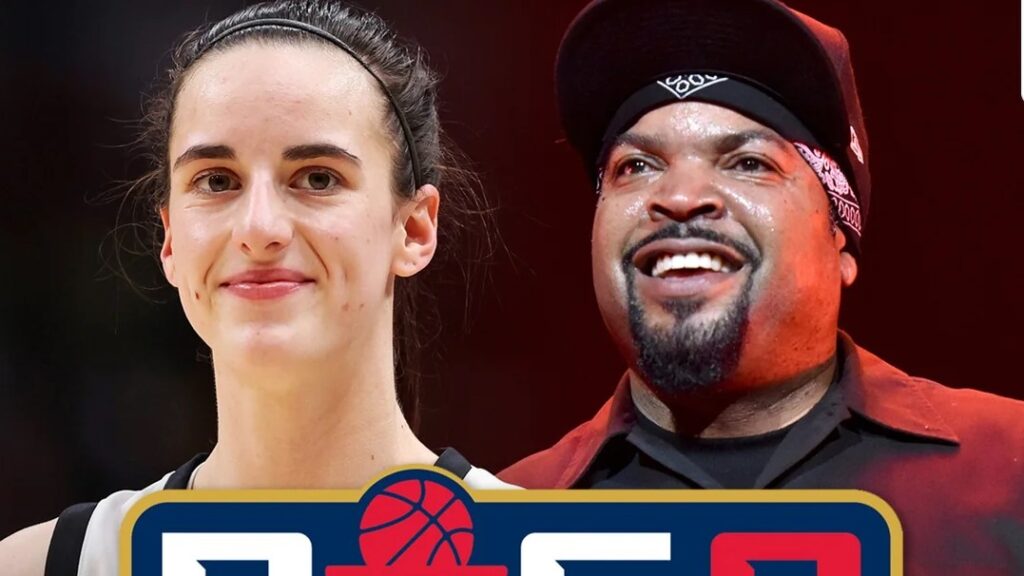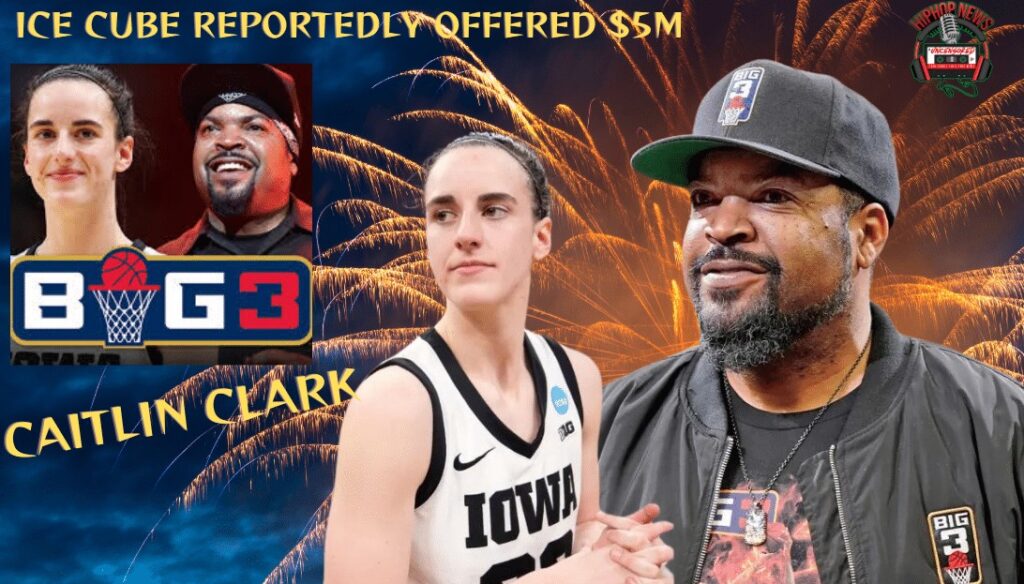Ice Cube’s $5 Million Gamble: The Untold Story Behind Caitlin Clark’s Big3 Rejection
The basketball world witnessed something unprecedented when Caitlin Clark stepped onto the WNBA stage with the Indiana Fever, bringing an electricity and magnetism that transcended traditional boundaries of women’s professional basketball. As her second season continues to unfold with remarkable intensity, Clark has become more than just a player – she has evolved into a cultural phenomenon whose every move generates headlines, debates, and passionate discussions across social media platforms and sports networks nationwide.

During the recent All-Star break, while fans eagerly anticipated Clark’s return to the hardwood after a challenging first half marred by various injuries that kept her sidelined for critical stretches, another story emerged that revealed the true extent of her marketability and the lengths organizations would go to secure her services. The revelation came from an unexpected source: rap legend and Big3 league founder Ice Cube, whose candid admission about his recruitment efforts painted a picture of missed opportunities and the complex machinery that surrounds modern sports stardom.
Speaking with Athlon Sports in what can only be described as a moment of raw honesty, Ice Cube pulled back the curtain on his ambitious attempt to bring Clark into his three-on-three basketball league, revealing details that illuminate the often murky world of sports negotiations and agent interactions. The offer he extended was nothing short of extraordinary – a staggering $5 million contract that would have made Clark one of the highest-paid players in any alternative basketball league, demonstrating the Big3’s serious commitment to revolutionizing professional basketball entertainment.
“We offered her $5 million,” Ice Cube stated with the directness that has characterized his decades-long career in entertainment and sports, immediately dispelling any notion that this was merely a publicity stunt designed to generate headlines without substance. His follow-up comments revealed the frustration that many high-profile figures experience when attempting to navigate the protective barriers that surround elite athletes, as he explained how Clark’s representation effectively shut down any possibility of direct communication before serious discussions could even begin.

The entertainment mogul’s disappointment was palpable as he described how the opportunity slipped away before it could be properly presented, noting that “her agents kind of snuffed it out” and prevented any meaningful dialogue between the Big3 organization and Clark herself or her family members. This revelation highlights the often-overlooked role that sports agents play in shaping career trajectories, sometimes making decisions that athletes themselves might approach differently if given the complete picture and full autonomy in the decision-making process.
Ice Cube’s vision for Clark extended far beyond simple roster addition, as he articulated a grand narrative that would have positioned her as a trailblazer comparable to tennis legend Billie Jean King, whose historic Battle of the Sexes match transcended sports to become a defining moment in gender equality and athletic achievement. “We thought she could have a Billie Jean King moment and break a barrier by playing professional three-on-three,” he explained, revealing the historical context and cultural significance he believed Clark’s participation could have achieved.
Despite the rejection and the lost opportunity for what could have been a groundbreaking collaboration, Ice Cube demonstrated the grace and professionalism that has sustained his diverse career across multiple industries, expressing no bitterness toward Clark’s decision while maintaining confidence in his league’s trajectory and cultural impact. His comments about “owning the culture right now when it comes to basketball” reflect an organization that remains ambitious and forward-thinking, regardless of individual recruitment setbacks.

The story took an amusing turn when Barstool Sports founder Dave Portnoy entered the conversation with characteristic humor and hyperbole, jokingly doubling Ice Cube’s offer to $10 million for Clark to join his company’s intramural basketball team – a move that, while clearly tongue-in-cheek, underscored the bidding war atmosphere that Clark’s talent and popularity had generated across various entertainment platforms.
Throughout this entire saga, Clark has remained focused on her WNBA career with the Indiana Fever, where her impact has been measurable both statistically and culturally, averaging 16.5 points per game across 31.1 minutes of playing time while helping guide her team to a respectable 12-11 record through the season’s first half despite injury challenges that tested the team’s depth and resilience.